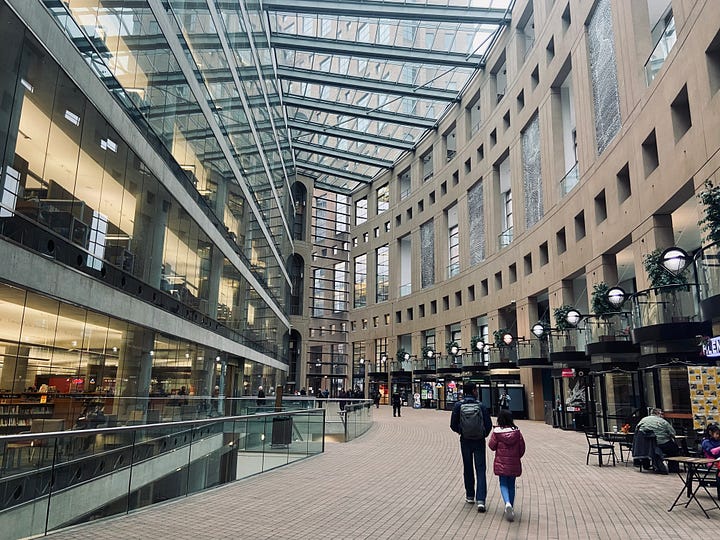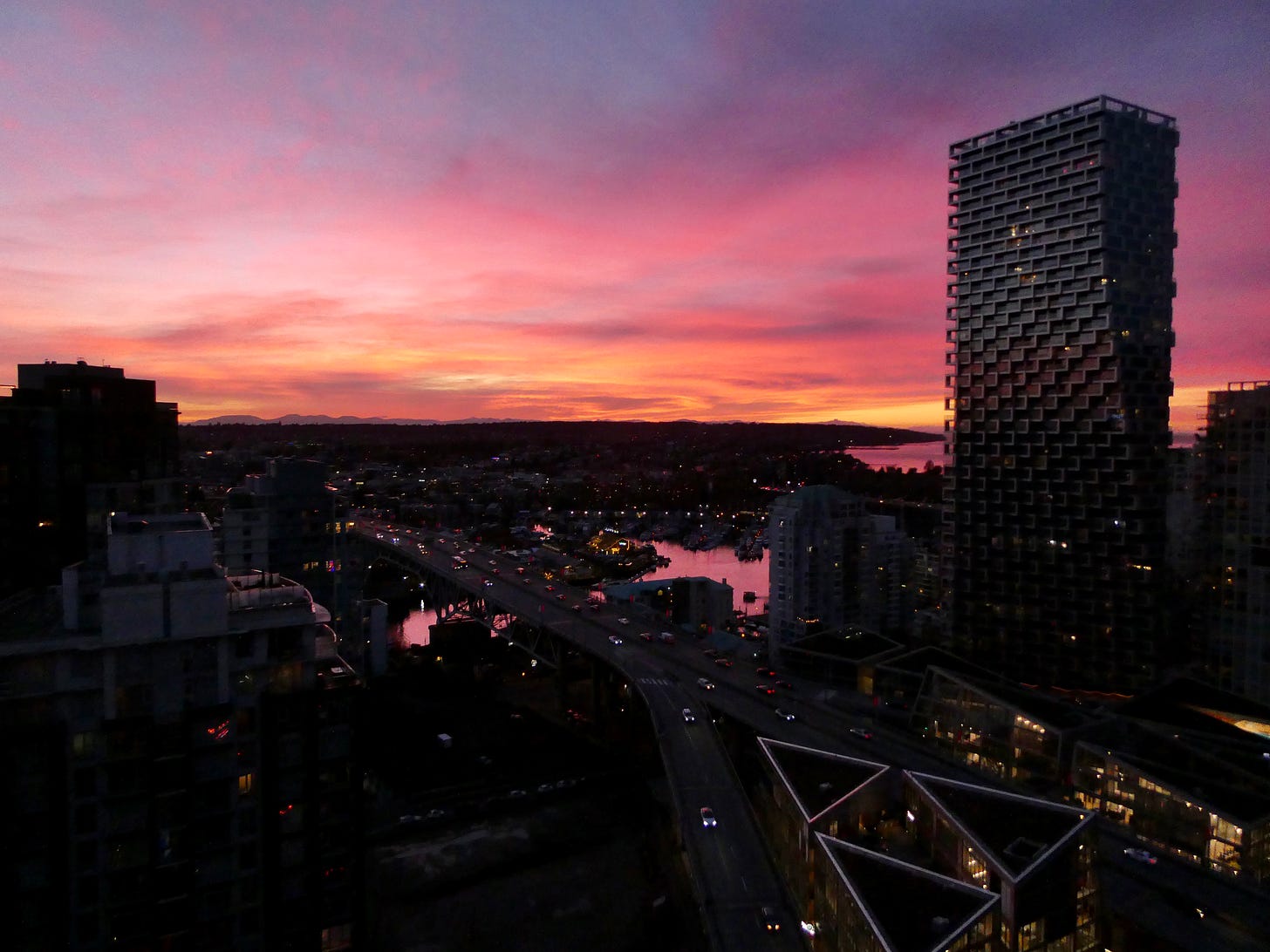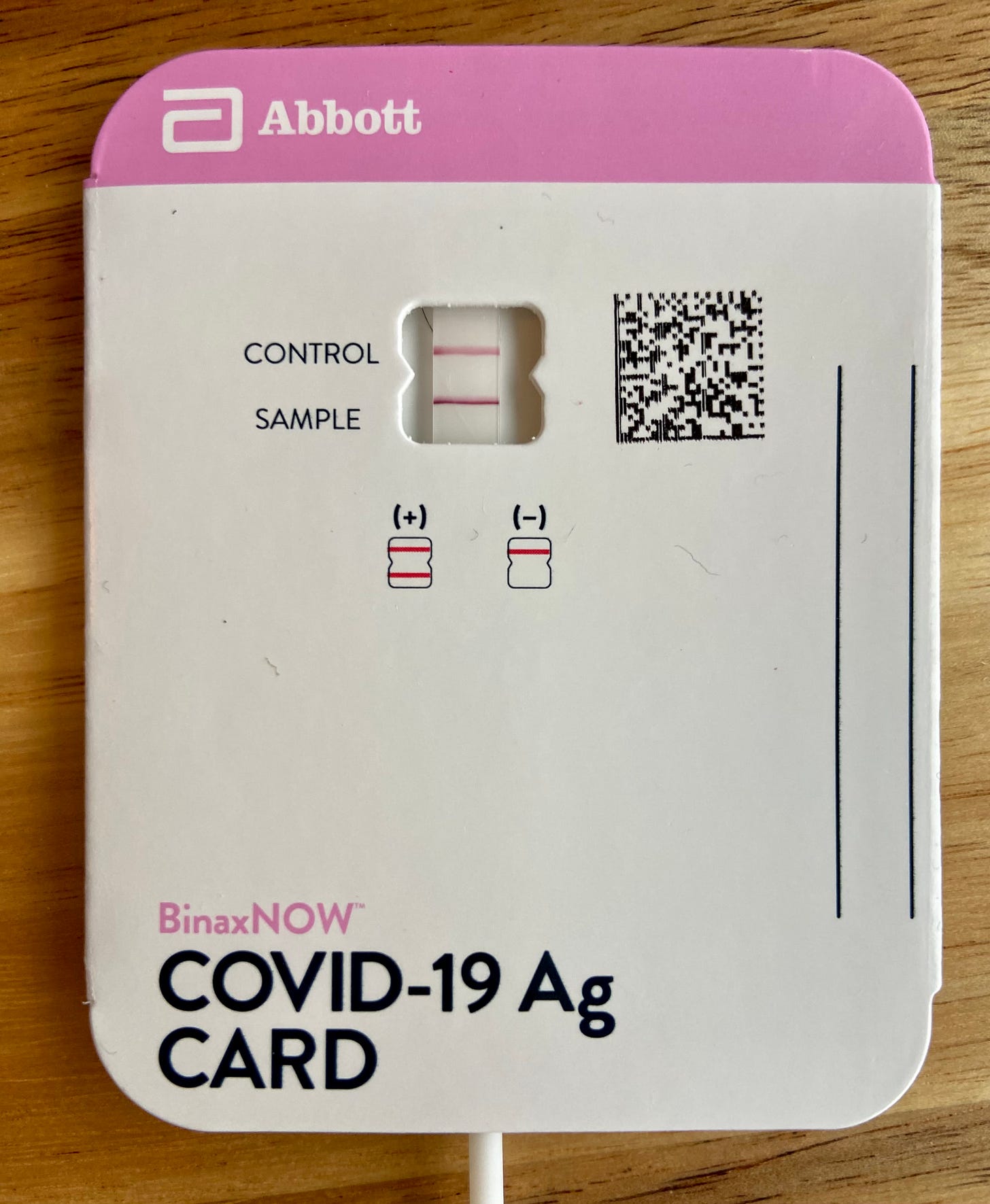Hello Vancouver and Covid
Bah humbug, friends.
After three years of being lucky, I almost believed our family might never get Covid. Perhaps we had some sort of special anti-Covid shield around us? Alas, we do not. I got Covid last week, late to the trend, months after almost everyone I know had had it already. Just another case of fever, congestion, cough, and what-have-you. Even a clichéd loss of sense of smell. How basic.
A few days after I was felled by the virus, Taz also tested positive. Fortunately, we’d all just gotten our Covid boosters a couple of weeks ago while back home. Probably because of those boosters, our symptoms have been fairly mild.
I had a few at-home Covid tests with me when we arrived in Vancouver; once I tested positive, I asked Taz to get replenishments. He came back from the pharmacy to report that the tests could be found in bowls on the pharmacy counter, free for the taking. No forms to fill, not even anything to scan. Just pick a box of five tests up (one box for each adult in the household, honor system) and waltz out of the pharmacy with them. I marveled. Covid tests are free in the US too—if you have insurance. You have to fill out a form with all your insurance information before you can request up to eight tests per month. While I appreciate that we get any free tests at all, as with every other medical insurance-related matter in the US, they have to make it just a little bit of a pain in the ass before they’re satisfied.
We’ve been curious about how Canadian healthcare systems function in real life, and now Taz has had a real-life experience with it. Because of Taz’s health condition, antiviral treatments were advisable once he tested positive. We did a bit of research and found that British Columbia has a four-step protocol for determining if you qualify for, and then obtaining, antiviral treatments. Taz dutifully followed the steps. Not being a BC resident, he had some trepidation about how challenging it might be to navigate the system. The system was tested and the system passed—hurrah! After taking an online self-assessment, he called Service BC for an intake screening, and was then told a doctor would be in touch. The doctor called him back promptly, and Taz said she was very knowledgable and professional. It took a few more hours to arrange treatment, and later that night he was prescribed a series of Remdesivir infusions and told where to receive them.
For BC residents, this treatment is free. For Taz, the infusions cost CAD $900 (about USD $670) each, and he needed to have three. Hopefully some of that cost will be covered by our travel insurance. As I write this, Taz just walked in the door from his third and final infusion. Without his follow-up (which he often has to do to coordinate his medical care), the staff here has already sent Taz’s treatment report to his regular nephrologist at UCSF hospital. Taz gives this BC healthcare experience an A grade.
This week has been an odd one. We’re staying in downtown Vancouver, and our apartment is on the 32nd floor. It has an expansive, almost 180-degree view through floor-to-ceiling windows across two walls of the living room. From our windows, I see that the action down below is constant. Stuck inside for days, I watched the ferries crossing narrow False Creek to Granville Island, cars hurtling across Granville Bridge, the people in the apartment building next to ours doing exercises and conducting Zoom calls. Crows and seagulls fly up to our eye level all the time, and sometimes land to rest on our window ledge.
It’s been a while since I’ve spent much time looking out of a city skyscraper window. Being so high up and unable to join the throngs down below was a surreal and detached experience. Though Beanie was healthy, she couldn’t start her school trial visits because we were sick, so the three of us passed most of the previous few days together, up here in our glass holding pen, suspended somewhere outside of time and space. I’m looking forward to getting better, and the chance to more fully experience the fast stream of life below us.
Pretty Good Things
Not having Covid
I was lucky to have a mild case, but I would still not recommend it. I’d say that given a choice between getting it or not getting it, you should definitely choose to not get it.
BC healthcare system
I know Canadian healthcare systems have their problems, but Taz’s recent interactions with BC healthcare have left him impressed so far.
Vancouver Public Library (and all public libraries)


I started feeling bad on the morning we were slated to move from our hotel to our rental apartment. In between check-out and check-in, there were a few hours during which we didn’t have a place to go—normally not a big deal, but when all you want to do is lie down, those few hours are interminable.
Thank goodness for the Vancouver Public Library, which is a short walk away from our apartment. As Beanie giggled her way through several Garfield comic books, I sat on the floor in a corner far away from anyone else, dozing in quiet and relative comfort. Thus we passed the time until we were able to check in to our new place.
When I was younger, I thought being a librarian was a marvelous job, with lots of time to read and direct people to the right reference materials, and to shelve books (which I find quite fun). I even volunteered at the public library while in high school, archiving local interest stories in a time when that involved cutting actual physical newspaper articles and filing them in actual physical files.
Now I know the job of a librarian is far more difficult and complicated than I’d imagined. It’s only gotten harder over the years, as an increasing number of homeless people while away their days in one of the few places that welcomes them, one of the few public spaces that doesn’t require money to access. Today’s librarians act as educators, mediators, and social workers when dealing with the clients who walk through their doors.
They get hit and kicked and spat upon. They have to deal with bodily fluids and overdoses and death threats. Libraries are so wonderful and valuable, and it’s awful that librarians are subjected to abuse.
Here are some ways we can support our local libraries.
A library is a place that is a repository of information and gives every citizen equal access to it. That includes health information. And mental health information. It's a community space. It's a place of safety, a haven from the world.
—Neil Gaiman




